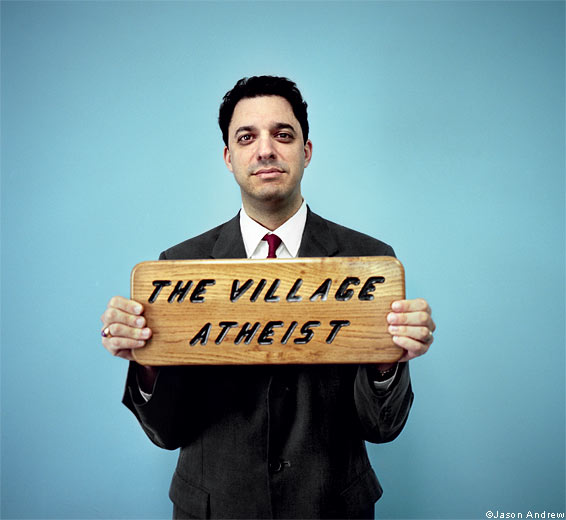By JULIAN BAGGINI - FT.COM
Added: Mon, 06 Feb 2012 12:52:45 UTC
David Silverman, president of American Atheists
Point, Texas (pop. 792) is not the easiest place for a single lesbian to raise her child. But neither her sexuality nor her unwed parenthood are enough to make Renee Johnson an American conservative’s worst nightmare. As she explained to me when I met her at Rains County Library, “I’d rather have a big ‘L’ or ‘lesbian’ written across my shirt than a big ‘A’ or ‘atheist’, because people are going to handle it better.”
We had met in a private room because Johnson worried that anywhere else in the town, people might overhear us and be offended by her godlessness. No wonder she often feels alone in her non-belief. But Johnson is far from unique. As I found out when I travelled across the US last year, atheists live in isolation and secrecy all over the country. In a nation that celebrates freedom of religion like no other, freedom not to be religious at all can be as hard to exercise as the right to swim the Atlantic.
America is the well-known exception to the rule that the wealthier and better-educated a country is, the less religious its population. As a Pew Research Center report put it, when it comes to religiosity, “the US is closer to considerably less developed nations, such as India, Brazil and Lebanon than to other western nations.” But what is less discussed is what this means for the minority who are not just apathetic about their faith, but have actively rejected it.
The issue is somewhat neglected because it’s not usually perceptible on the coasts and in the larger cities, but the almost complete absence of overt atheism is striking at all levels of US public life, even in cosmopolitan areas.
This week, Barack Obama was invited to speak at the 60th National Prayer Breakfast, an interfaith gathering which every president since Eisenhower has attended. In the history of Congress, on the other hand, there has only been one avowed atheist, Pete Stark, who has represented ultra-liberal Oakland in California since 1973 but only acknowledged he did not believe in a supreme being in 2007. Even he is a member of the non-doctrinal Unitarian Church, prefers to refer to himself as “non-theist” rather than atheist, and refused to be interviewed for this piece. This compares with at least six openly homosexual representatives.
As leading American public atheist Sam Harris sums it up, being a member of the godless club is “basically the worst thing you can be in terms of having a political life, incurring the judgment of strangers”. A Gallup poll last year showed that, while 9 per cent of Americans would not vote for a Jewish presidential candidate, 22 per cent wouldn’t support a Mormon and 32 per cent would not vote for a gay or lesbian candidate, 49 per cent would refuse to back an atheist for president.
Still, I found that even some New Yorkers, Bostonians and Washingtonians didn’t think there was much problem with being an atheist in their country. Until, that is, I told them a few stories. Like that of Harry Purdy, born in Manchester, the son of an American GI father he did not know. A year after the US government opened up its records, the then 46-year-old stepped off the plane at Louisville Airport, Kentucky in May 1991 and became the first of the lost GI babies to be reunited with his father. Purdy eventually took up American citizenship and moved over to live in 1993.
“It was a good thing I met him for the first time,” he told me when we met at a roadside restaurant near his home, “but this is Kentucky, this is the Bible Belt. I’m an atheist.” One by one, members of his new family turned against him because of his lack of belief. Harry doesn’t see any of his American family any more. “The last one I saw was my cousin, Ronnie. Every time he invites me over to dinner, he turns to religion. Last time I saw him, I didn’t back out, I took him full on.
“I’ve been told things like ‘I hope you have an accident, die and go to hell.’ So that’s what I’ve been up against.”


No comments:
Post a Comment